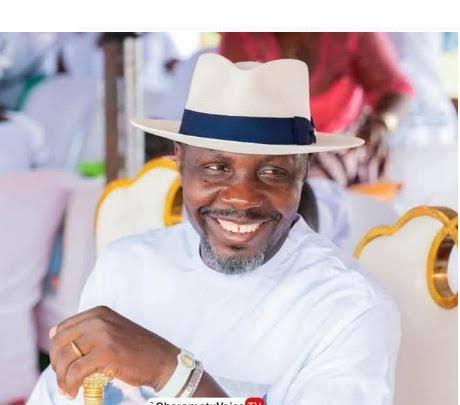By:Babangida Yunus
i have watched an interview, from which I have extracted and attached a relevant portion featuring the comments of High Chief Government Oweizide Ekpemupolo. Upon reviewing his remarks, I am convinced and motivated to offer a written reflection on the issues he raised.
The progression of High Chief Government Oweizide Ekpemupolo, known widely as Tompolo, offers profound lessons for leadership, development, and peacebuilding in Nigeria. In revisiting his recent reflections, it becomes clear that his journey embodies critical principles needed for the sustainable future of a diverse and complex nation.
Leadership in fragile democracies like Nigeria requires more than political correctness; it demands strategic loyalty. Trust is not a luxury, it is the very architecture that holds leadership together in volatile environments.
Throughout Nigeria’s history, from the First Republic to the present, betrayal and disloyalty have often derailed national progress. Leaders who ignore the strategic imperative of surrounding themselves with trustworthy people often find themselves sabotaged from within.
My emphasis on trust is thus a sober reminder that inclusion must never come at the cost of stability. Competence is important, but in the Nigerian context, trust is also foundational. Without it, administrative coherence collapses, policies are undermined, and public confidence erodes.
In contemporary Nigeria, the appointment of trusted allies by a leader is often misread as sectionalism or ethnic favouritism. This is a dangerous oversimplification. Nation-building requires patience, historical understanding, and critical analysis beyond ethnic lenses.
It is counterproductive to reduce leadership evaluation to “who got what” narratives. True development occurs when appointments are measured by merit, performance, and national impact, not just geographical spread. The early criticisms against President Tinubu, particularly from those feeling sidelined, reflect a deeper national weakness: the inability to prioritize collective progress over personal or ethnic interests.
Educating the citizenry on how modern governments function, including why trust and capacity are critical in appointments, is essential for Nigeria’s political maturity.
TOMPOLO’S EVOLUTION: A MODEL FOR CONFLICT RESOLUTION
Tompolo’s transition from activist to advocate for peace demonstrates a crucial principle of conflict transformation: true leadership evolves. Freedom campaign, while a reaction to injustice, must eventually give way to dialogue, negotiation, and institutional building for lasting change.
Global examples abound, from Nelson Mandela’s armed struggle to his later reconciliation efforts, to Gerry Adams’ leadership of Sinn Féin after decades of conflict in Northern Ireland. Tompolo’s path mirrors this global pattern: legitimate grievances can give birth to legitimate institutions when visionary leadership is applied.
This evolution provides a clear message to conflict-prone communities in Nigeria: Violence alone can not deliver lasting justice; institution-building, education, and strategic engagement with the state are the ultimate tools of sustainable liberation.
MARITIME EDUCATION AS CATALYST FOR NATIONAL DEVELOPMENT
The establishment of the Nigeria Maritime University at Okerenkoko stands as one of Tompolo’s most visionary contributions. Beyond the Niger Delta, it signals a new frontier for Nigeria’s economy: the blue economy.
Globally, maritime industries contribute trillions of dollars annually. Nigeria, with a coastline stretching over 853 kilometers, is strategically positioned to benefit immensely from maritime trade, logistics, fisheries, tourism, and marine research. Yet, without skilled human capital, these opportunities will remain untapped.
The NMU is therefore not just an educational institution; it is a catalyst for national economic diversification. It prepares Nigeria to harness:
1. Maritime security and anti-piracy operations
2. Offshore oil and gas management
3. Fisheries and aquaculture development
4. Environmental conservation of coastal ecosystems
5. International shipping and logistics competitiveness
Educating youths in these areas will position Nigeria not only as a continental leader but also as a major player in the global blue economy.
THE NIGER DELTA QUESTION: BEYOND COMPENSATION TO STRUCTURAL EMPOWERMENT
The Niger Delta’s agitation has often been addressed through compensation — financial handouts, contracts, and political appointments. However, such short-term solutions have not addressed the underlying structural injustices: environmental degradation, exclusion from oil wealth, and lack of economic alternatives.
Tompolo’s shift toward institution-building — as exemplified by NMU — reflects a more sustainable solution: structural empowerment. True justice for the Niger Delta lies in:
1. Environmental clean-up and restoration (Ogoni clean-up as a litmus test)
2. Infrastructure development — roads, hospitals, schools
3. Direct community ownership and management of resources
4. Investment in industries beyond oil
Educating Niger Delta youth to become entrepreneurs, environmental scientists, engineers, and public policy experts is far more transformative than temporary financial compensation.
YOUTH AND THE POLITICS OF RESPONSIBILITY
A profound lesson from Tompolo’s journey is the need for the Nigerian youth to embrace responsibility over entitlement. While the grievances of unemployment, injustice, and marginalization are real, the solution does not lie in endless protest without vision.
Youth must:
1. Pursue education relentlessly, especially in areas of strategic national importance.
2. Engage in civic activities, including policy advocacy, community development, and public discourse.
3. Embrace entrepreneurship and innovation.
4. Demand accountability not through violence, but through democratic channels, elections, town halls, media engagement.
The future belongs to those who build, not those who merely complain.
In conclusion, Tompolo’s contributions to peace and development offer a blueprint for a new national consensus. Nigeria must move beyond the politics of division and grievances toward a politics of reconstruction and responsibility.
Trust must be restored, not blind loyalty, but strategic trust built on shared national goals. Education must be prioritized, not just certificates, but skills for the 21st-century economy. Peace must be sustained, not through force, but through inclusion, justice, and opportunity.
In the final analysis, Tompolo’s leadership journey challenges all Nigerians to reconsider what true patriotism looks like: not perpetual campaign, but the relentless pursuit of structures, policies, and systems that secure dignity for every citizen.
Nigeria’s future will not be shaped by those who remember old wounds alone, but by those who heal them with courage, innovation, and a commitment to the generations yet unborn.

